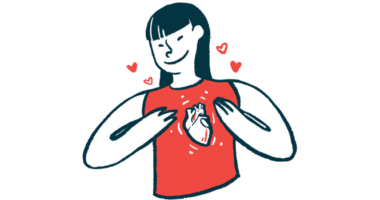Phase 2 Trial of CMK389 Recruiting Adults With Pulmonary Sarcoidosis

A Phase 2 clinical trial is recruiting adults with chronic pulmonary sarcoidosis to investigate the safety and therapeutic potential of CMK389 in improving lung function.
CMK389 is an investigational therapy, developed by Novartis, for the treatment of pulmonary sarcoidosis and atopic dermatitis. It was designed to inhibit interleukin 18, a signaling molecule known to play a role in lung sarcoidosis progression.
The proof-of-concept trial (NCT04064242), done in collaboration with the Foundation for Sarcoidosis Research, is currently enrolling eligible patients at sites across Europe and the U.S.; more information is available here. Additional sites may be added, according to the foundation’s press release.
In a proof-of-concept trial, the objective is to make an initial evaluation of a treatment’s potential efficacy and assess its safety and tolerability.
Enrollment is open to adults ages 18 to 75 with pulmonary sarcoidosis diagnosis as confirmed by a lung biopsy conducted within at least a year before enrollment. Participants’ body mass index (BMI), a measure of body fat, should be within the range of 18–43 kg/m2.
To be eligible, patients should be undergoing prednisone treatment or an equivalent steroid medication, along with azathioprine or methotrexate for a minimum of six months before enrollment.
Patients with pulmonary hypertension, cardiac sarcoidosis or neurosarcoidosis might be excluded from the study, as well as patients treated with rituximab, Ilaris (canakinumab), Kineret (anakinra) and Actemra (tocilizumab). Current smokers might also be excluded.
More information on recruitment is available on the trial’s page, linked to above.
Following a four-week screening period, patients will undergo a six-week run-in period where they will discontinue treatment with azathioprine and/or methotrexate, and their steroid dose will be gradually reduced.
Those who show no safety issues will then move into the treatment phase, during which patients will be randomly assigned to a placebo or CMK389, both delivered as a single intravenous (into-the-vein) infusion every four weeks.
Treatment will be administered for 12 weeks (four doses), after which patients will be followed for up to 28 weeks.
The trial’s main goal is to assess changes compared with the trial’s start (baseline) in forced vital capacity (FVC), a measure of lung function. FVC measures the amount of air that can be forcibly exhaled from the lungs after taking the deepest breath possible.
During follow-up, safety assessments include physical examinations, monitoring of adverse events, and lab tests.
Women of childbearing age will be followed up to 40 weeks after the last treatment to monitor any case of pregnancy.







